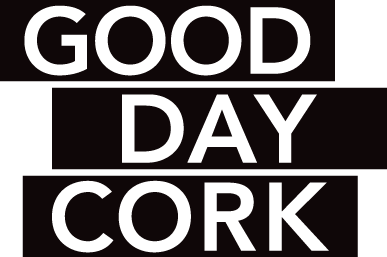Pop-Up @ Mother Tongues Festival 2021
By Many Tongues of Cork
Kel Menton shares their reflection after attending ‘Food & Music Cafe’ by Many Tongues of Cork held at Mother Tongues Festival on 20th May 2021.
Share
I have grown up drinking in stories. My own life and experiences have blended with the books I’ve devoured, the poems, songs, TV shows, movies. I have friends that accompanied me through every high and low of my life even while being trapped in the form of ink and paper. Stories help me to understand – myself, the world around me, and the people I share a planet with.
As I’ve grown older, though, I’ve realised the library I was in had false walls. When I pushed them down, I discovered more stories – stories from people, about people, who did not look like me or think like me or speak the same tongue as me. I had lived a thousand lives but they were all white, almost entirely by Anglophones, largely by men, and overwhelmingly straight and cisgender. It seems so obvious to me now, looking back. But what a privilege it was to meet so few of these walls that could prompt questions like Where am I? Are there no stories about someone like me?
The Mother Tongue festival answers yes, let me show you.
The Food & Music Café followed the Many Tongues of Cork format. It was facilitated by Jo Dukkipati of Good Day Cork and Eilis Biggs of Think Speak Do at the Mother Tongues Festival. It was unlike anything I had ever experienced before. Even over Zoom, the connection was unreal – like touch without touch, simply via the power of words, of language.
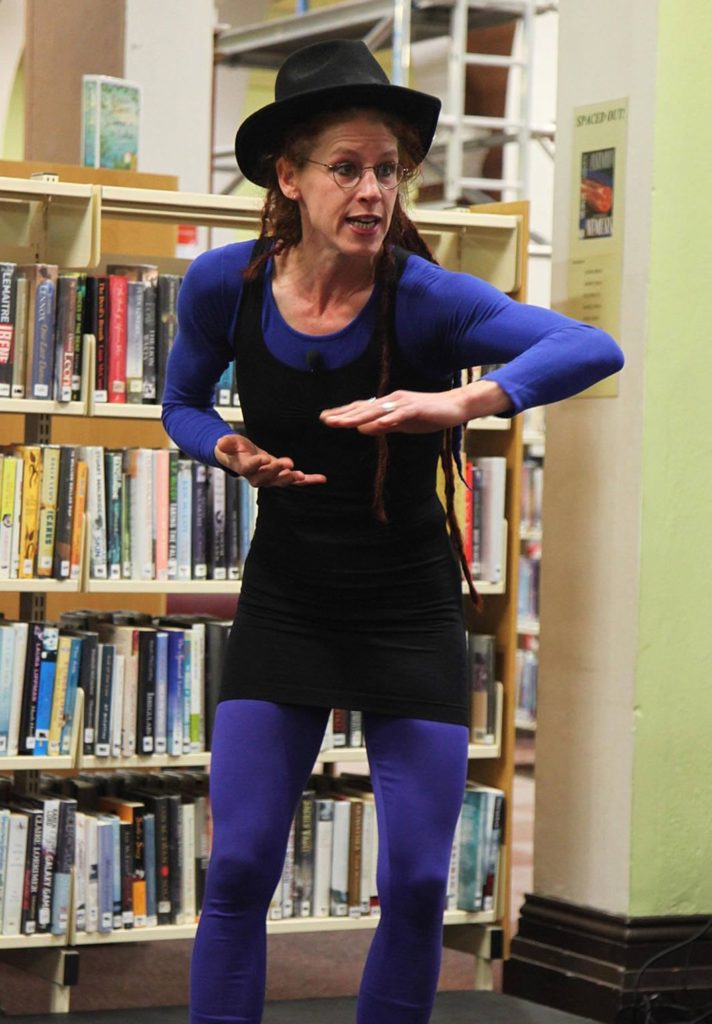
After a brief introduction to the Café event, we were cast into breakout rooms for more intimate discussion. I was anxious that I wouldn’t be able to take up my usual position as wallflower, but it didn’t take long to be swept away. One woman described her mosaic background – half-Igbo, half-Irish, with over four decades in Germany under her belt.
A patchwork quilt of cultures, foods, languages, identities, but she swatted away my exclamations of amazement. She was envious of a more straightforward cultural identity – every question we had been given about our cultural relationship with food, she struggled to answer. “You can really say I am,” she said, but didn’t feel she could do the same. She was a bit of everything, a vegetable soup. It made sense, I thought, when you belonged everywhere and nowhere all at once. But stories are so vital for a person’s journey towards self-actualisation. If you don’t see your reflection, how do you know you exist? Are you alone? Is there no blueprint for you, no guide?
We were pulled from our breakout rooms then to hear the first poet speak. Rosalin Blue has German roots, but has spent many years in Cork. She sang, read her translation works, and performed an original work, bouncing from English to German and back again. She was mesmerising to watch, melodic and dancing, using her whole face, body, and voice to bring her words to life. Her hands in particular moved with such definitive purpose that I wondered if she used German or Irish Sign Language in her performance. Rosalin’s pieces showed my ear a new kind of German, a soft, witty, prancing side to the language that I had never heard before.
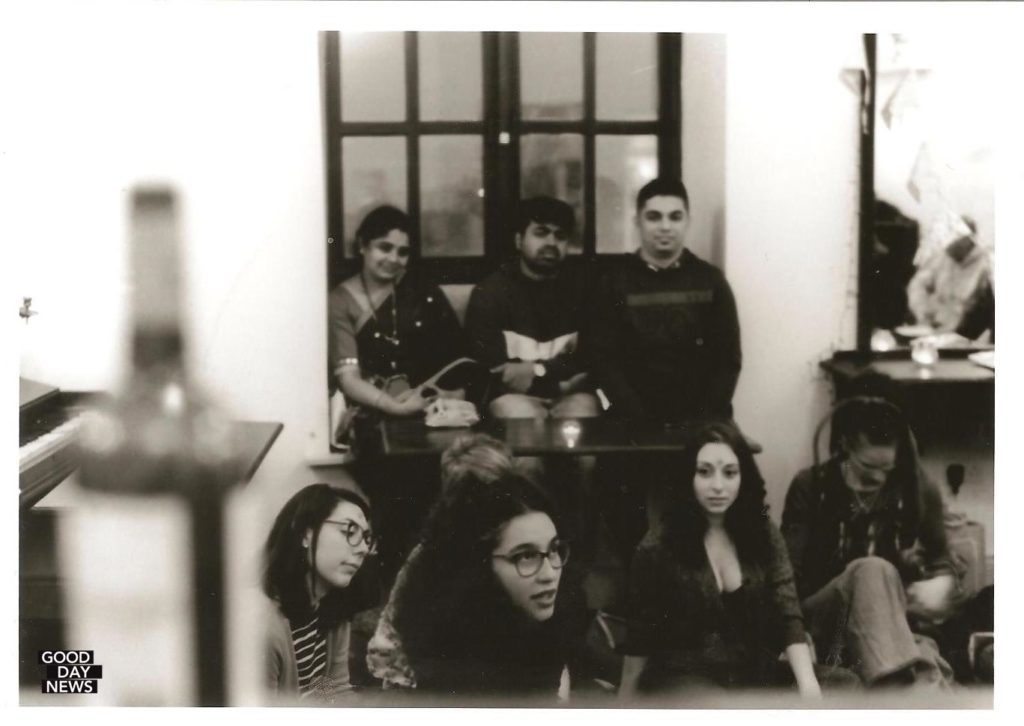
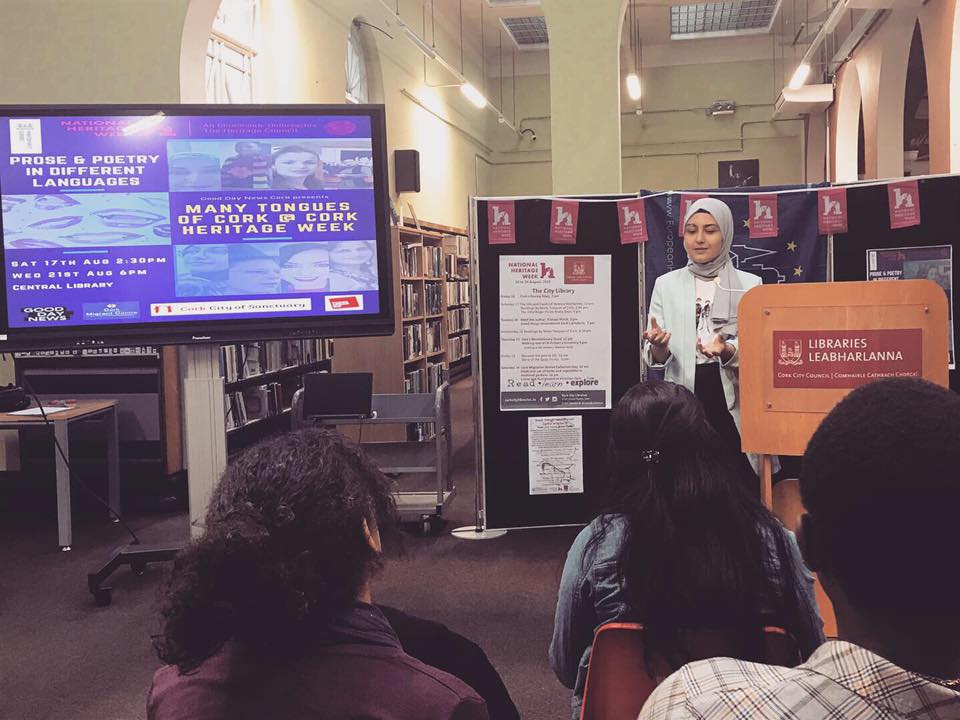
Our second stint in Breakout rooms revolved around discussing our cultural or personal relationships with music. One Sicilian lady told us of memories of her grandmother, who would invite buskers into her home to play their music. I learned about Tarantella music and its origins as a ritualistic cleansing for ‘hysteric’ women. Unfortunately, Tarantella is another victim of colonisation by the Church; elements of the rituals have been lost, and saints’ names have been added to the songs. Still, I have a new addition to my bucket list: attend a beach-side Tarantella festival!
The final poet to perform, Nqobizitha Vella, came to live in Mallow via Bulawayo, Zimbabwe. It made my heart swell with pride and joy to hear that she felt Cork was her home – “a place of freedom, safety and peace”. She spoke about her mixed feelings during the Café event; about how she had talked about food and music that wasn’t really hers. “I never got to eat [my food],” she said, “because I was born under the colony of the British”. I was taken aback by how many feelings I shared with her. Grief, fear, anger, a fight against despair while you try to balance preserving the past without letting it rob you of your future. Nqobizitha claimed she was not a poet, but when she read her piece “They Said” in her mother tongue, Ndebele, I knew that wasn’t true. I didn’t read the translation until after she had finished speaking, but I found a sob lodged in my throat anyway. The swollen vowels, jewelled with click consonants, and accompanied by the poet’s own passion, were breathtaking. I have never heard anything like Ndebele, but I hope to hear Nqobizitha perform again for many years to come.
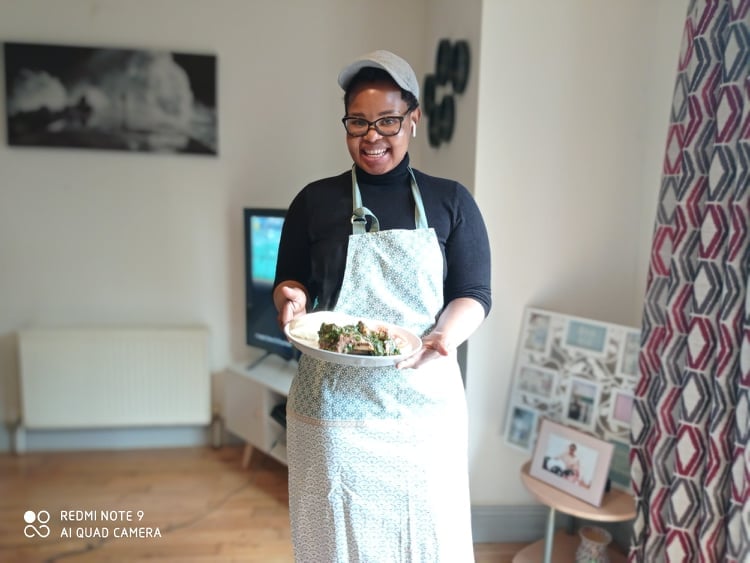
The café wrapped with one final discussion; how do we move towards a more inclusive, diverse, kind world? How do we truly learn to understand that there is more that connects us than divides us? Many agreed that education is key. From a young age, we should be taught to celebrate both our own differences, and the differences of others. Everyone should be able to stand up with pride about where they’re from, what language they speak, their race, their sexuality, their gender, their body, and their mind. I was reminded of something I heard at a seminar given by As I Am: “Diversity is being invited to the party. Inclusion is being asked to dance.”
Join Our Newsletter
Take the first step to manage your media diet and get weekly news delivered to your inbox.
Sign UpNo related posts.

